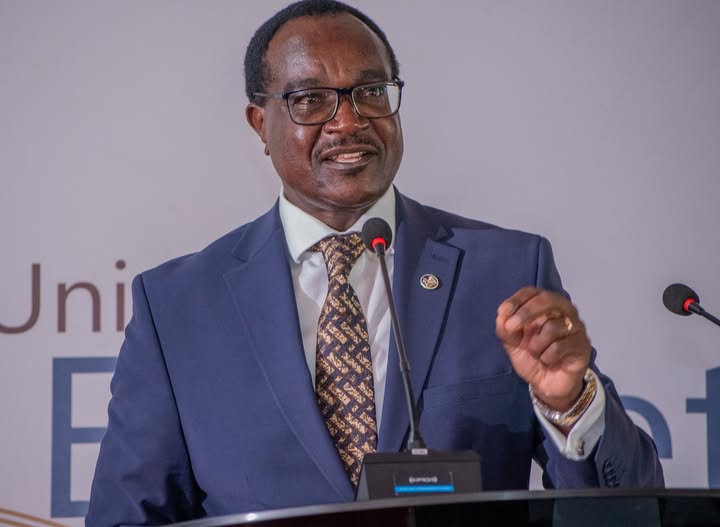Mathematics is once again a required course, according to Education CS Julius Ogamba.
Julius Ogamba, the education cabinet secretary, has mandated that mathematics, in some form, be brought back as a required course in the upper secondary level.
Ogamba announced during the National Conversation on the Competency-Based Curriculum on Thursday that the ministry has heard the concerns of stakeholders and determined that all pathways should include some sort of mathematics.
“The majority of the stakeholders at the CBC discussion agreed that mathematics should be mandatory in senior high school. Ogamba instructed, “We have listened to your concerns, consulted with the Kenya Institute of Curriculum Development (KICD), and arrived at a decision that some form of mathematics be made compulsory for the other two routes that are not STEM.”
With this new approach, the CS predicts that pupils who selected the STEM route will study pure mathematics, while the other two routes will offer a more basic form of the subject.
The KNEC exams of Ruto
During a previous series of national tests, President William Ruto handed out test papers. PCS
The CS stated that in senior school, there will be mathematics in all three pathways: the STEM pathway will have pure mathematics, while the other two pathways will have some sort of mathematics.
In contrast to the 8-4-4 curriculum, where mathematics was a required topic, the ministry had ordered that students in senior school now have the option to choose their courses based on the pathways they selected.
Students who selected the first two tracks—Arts and Sports Science and Social Sciences—had the option of skipping mathematics, according to the ministry’s classification of the routes into three categories: Science, Technology, Engineering, and Mathematics (STEM), Social Sciences, and Arts and Sports Science.
However, Ogamba has changed his mind and mandated that there be some sort of mathematics in these two courses.
His decision to reverse the decision comes after the events sparked contentious discussions among Kenyans and key stakeholders, who contended that it was an unwise move that had the potential to negatively affect the labor market and economic viability of the nation.
The CS reassured Kenyans and the stakeholders that their opinions in the education system are valued, and the Ministry takes them seriously in an effort to improve the CBC curriculum, which has been criticized.
Ogamba stated, “It is a crucial aspect that we have listened to the views of the Kenyans, and it is a crucial input that has come from the stakeholders to show that stakeholder conversation is important.”
Ogamba has urged the public and stakeholders in Kenya to back this recent action.
Currently, the Principal Secretary Julius Bitok and the CS are actively working on the CBC transition in Kenya. Their top priorities are ensuring high-quality education and overcoming obstacles related to teacher preparedness, school facilities, and public worries about the CBC’s implementation.

